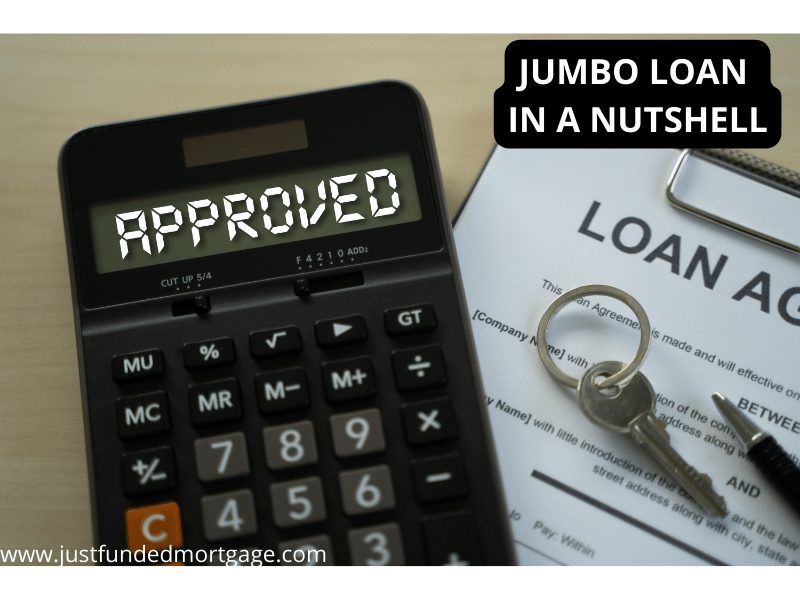Jumbo loans are becoming more and more popular lately as people are looking to buy luxurious homes. For those with sufficient financial means and can afford it, a jumbo loan is a great way for you to purchase a house that’s priced higher than the limits of a conventional mortgage.
Here, we have summarized everything you might need to know about jumbo loans in a nutshell!
What is a jumbo loan?
A jumbo loan refers to a type of loan that allows you to borrow a large sum of money in order to purchase a home. It’s much like a conventional mortgage; except the amount you can get in a jumbo loan is much higher than the typical limit for a conventional loan.
In a lot of states, the Federal Housing Finance Agency (FHFA) has established that the most amount of money you can borrow for a mortgage is around $647,200. So, if you’re looking to purchase a home priced above this, you will need to apply for a jumbo loan.
Many people call jumbo loans as non-conforming conventional mortgages. This is because the mortgage is not backed by Fannie Mae or Freddie Mac, making it a higher-risk transaction for the lenders.
Also called non-conforming conventional mortgages, jumbo loans are considered riskier for lenders because these loans can’t be guaranteed by Fannie Mae and Freddie Mac, meaning the lender is not protected from losses if a borrower defaults. Jumbo loans are typically available with either a fixed interest rate or an adjustable rate, and they come with a variety of terms.
How to qualify for a jumbo loan
Because the amount of money involved in a jumbo loan is much higher than a traditional mortgage, the qualification process is also a lot stricter.
Some of the documentation you’ll need to submit include income proof. We recommend preparing at least two years’ worth of tax verification, as well as any other liquid assets you have that can proof your ability to make the monthly payments.
Then, you will also need to have a good credit score and history—at least 700 gives you a good chance to be approved.
Meanwhile your debt-to-income (DTI) ratio has to be no more than 43%, although 36% maximum would be even more ideal. This is a measure of how your monthly debt compares to your monthly income.
Refinancing a jumbo loan
Can you refinance a jumbo loan? The good news is that just like other home loans, it’s possible to refinance your jumbo mortgage loan!
First off, you need a FICO credit score of at least 660. You will also need to prove that you have a DTI ratio of less than 43%, an LTV ratio of 80% or lower, less than four mortgaged properties, no bankruptcy in recent history, and an appropriate proof of cash.
There’s plenty of benefits you can get from refinancing a jumbo loan, including the ability to change your loan terms. You can then reduce or extend your loan terms and adjust them to fit with your other financial goals. It’s also possible to lower your interest rates, which might save you some money in the long run.
Additionally, there’s also the possibility of changing your interest structure, for instance from adjustable-rate to fixed-rate, or vice versa. Not to mention a cash-out refinance that enables you to tap your home equity and use the cash for other projects or needs.
Refinancing with your current lender is maybe the simplest thing you can do, especially if you already have good rapport with them. Of course, if you can find other lenders who are offering better rates and terms, it’s okay to switch too.
Pros of a jumbo loan
Perhaps the most obvious and crucial advantage of getting a jumbo loan is the higher limits you can enjoy. This is great for those of you wanting to buy larger homes with more luxurious features and amenities.
Another benefit is that because it’s not backed by Fannie Mae, Freddie Mac, or other restrictions, there is more room for flexibility. Lenders and borrowers are free to come up with personalized terms and rates that fit them best.
Cons of a jumbo loan
One of the disadvantages of a jumbo loan is the higher interest rate.
The stringent set of requirements can also be a drawback, because this means you’ll need a squeaky-clean credit record. Not to mention that the closing costs for a jumbo loan are usually higher too.
Finally, you should not that not all properties can qualify for a jumbo loan. This is why it’s always worth doing your homework and researching carefully!
The bottom line is this: jumbo loans are simply large-sized loans with more rigorous credit checks and stricter requirements compared to conventional mortgages.






